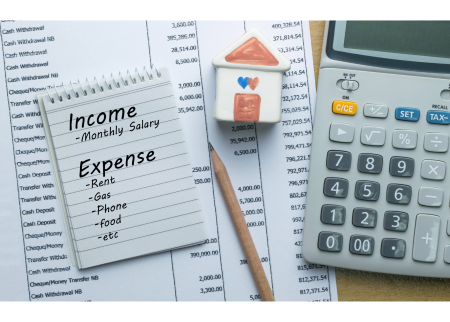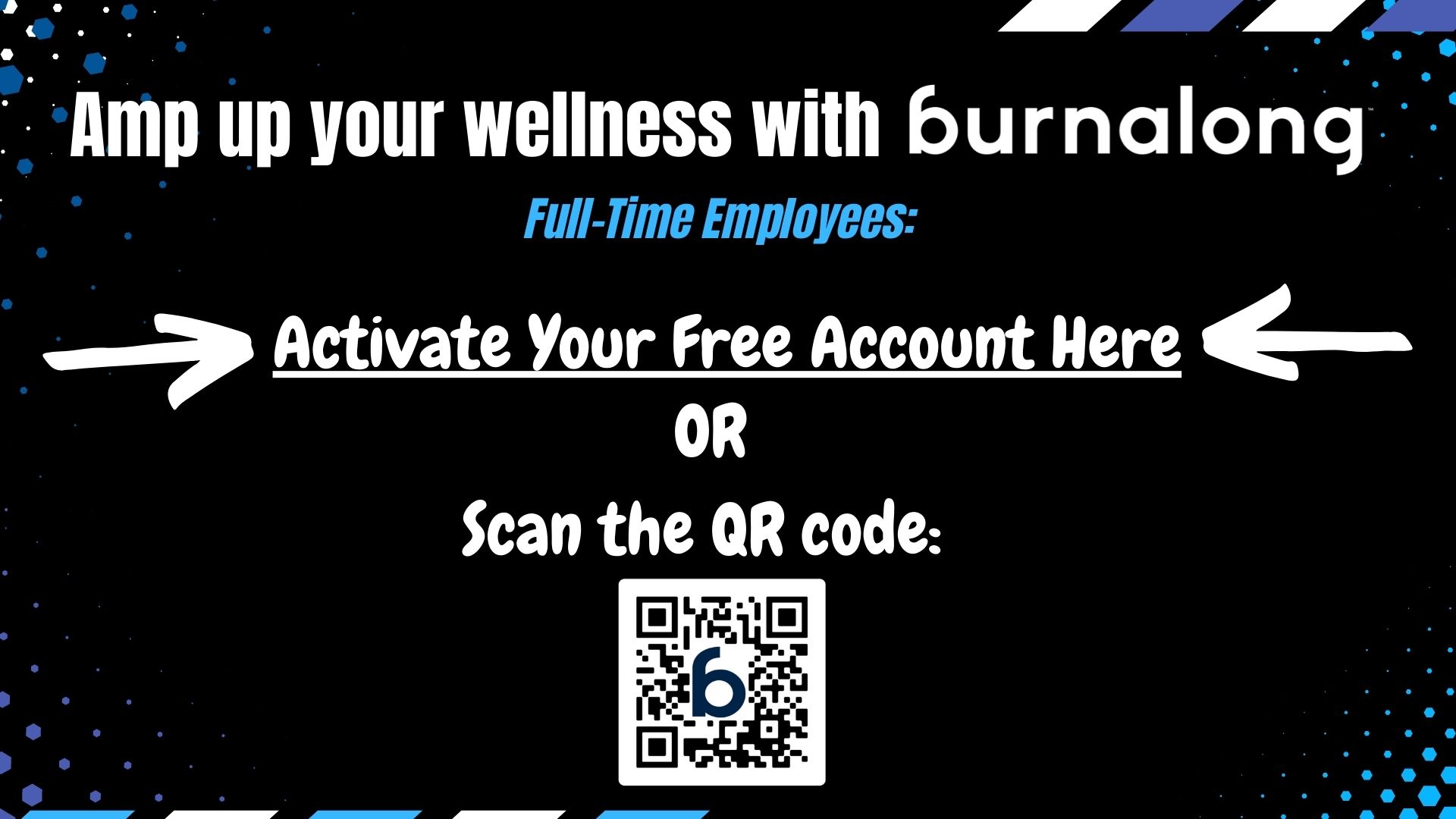February 2024
Live Within Your Means
Smart tips on how to live within your means
When you’re just starting a career or adding to your family, it’s sometimes tough to stay on a budget. It can also be difficult to put money aside for a rainy-day fund, vacation, retirement, children’s college costs or a down payment for a home.
How many people live within their means?
Many adults live paycheck to paycheck, which means they do not have enough money for emergency expenses. A study done by the Federal Reserve showed that 44% of adults say they couldn’t pay for a $400 emergency expense, or they would need to borrow money or sell something to pay for it.
What does it mean to live within your means?
If you're living within your means, you have enough money to cover all expenses. By adopting a personal finance plan and sticking to it, you can know your basic needs are covered along with other financial priorities.
Living beneath your means and living within your means are similar ideas. You’re earning more money than you’re spending. This allows you to save money for your financial goals, and it also gives you a cushion in case an emergency arises, and you need extra cash.
For example, Sean's monthly take-home pay is $1,000 a month. His monthly car payment is $300, living expenses and rent are $700, and health, car, and renters insurance are $200. Because his monthly expenses are $1,200 and his take-home pay is $1,000, Sean is not living within his means. He is paying more for his lifestyle and expenses than he is earning. If he were to cut spending to $900 per month, he would be living within his means.
Know your expenses
The most important tip for living within your means is to understand your cash flow. Before you set a financial goal, you should know how much money you make after taxes and understand your expenses. Some expenses are fixed, like rent/mortgage, car payments, and student loans. Others, like groceries and gas, can vary from week to week. Even with fixed expenses, you can still find ways to lower them, such as getting a less-expensive apartment or finding a roommate to split the cost.
And while you may be able to anticipate your utility costs each month, there could be significant fluctuation from season to season. You can lower utility costs by adjusting the thermostat when you know you will be gone all day, and plan to budget more during winter's and summer's temperature extremes. If possible, determine an average based on what you have paid in previous years, so you know what to expect.
Create a budget
When you know your expenses and income, set a reasonable budget, so you do not spend more money than you make. If it looks like you need to cut back, determine the easiest places to do so.
Set financial goals
It is hard to maintain a budget if you do not have objectives. By making a goal of saving a certain amount a month, you will be more inclined to make dinner or coffee instead of dining out. You will know the savings will go toward your goals, e.g., paying off debt, a new car or travel plans.
February 2024
Build a Healthy Relationship with Money
The Institute for Financial Literacy offers forms and worksheets covering budgeting resources and financial goal planning.
The Council for Economic Education focuses on equipping K-12 families with personal finance tools.
The Consumer Financial Protection Bureau is another valuable financial resource offering guides and educational materials.
Financial wellness plays a vital role in our personal and work lives. Let's build
a healthy and nurturing relationship with our finances.
January 2024
New start with a new budget! By Kate Stowe
Are you making significant changes to your financial habits for the upcoming year? If you said -yes, you are not alone! The good news is that you have many resources to support your efforts.
The TEXAS OFFICE OF CONSUMER CREDIT COMMISSIONER provides financial education for consumers and the tools and skills to make informed financial decisions. Per the TOCC site, consumers who understand their choices and obligations can manage their finances better and are more likely to reach their financial goals.
To help you achieve those financial goals, the TOCCC has built a budgeting worksheet to help get you on track. Use the link below to get the budget form.
December 2023
Financial Peace and Preparing for the New Year!
Very few things in life are as important as getting your financial house in order.
While many New Year’s resolutions dissipate  rather quickly, here are a few more resolutions to get you one step closer to getting your financial house in order.
Focusing on the positives and expressing appreciation for your financial life can
improve financial wellness as well. To make the most of this season of thankfulness,
here are several ways to practice mindfulness and help give your financial well-being
a healthy boost.
rather quickly, here are a few more resolutions to get you one step closer to getting your financial house in order.
Focusing on the positives and expressing appreciation for your financial life can
improve financial wellness as well. To make the most of this season of thankfulness,
here are several ways to practice mindfulness and help give your financial well-being
a healthy boost.
To make the most of this season of thankfulness,financial firm ConradSiegel have provided several ways to practice mindfulness and help give your financial well-being
a healthy boost.
Read the full article to see what ConradSiegel suggests.
November 2023
Get financially fit, but where to start? Your credit score!
How do you feel about your current financial situation? Are you stressed out? Are you on track but worried about retirement? Are you buried in credit card debt?
Ongoing stress about money can contribute to sleep problems, migraines, heart disease, unhappy relationships, and poor mental health. One way to prevent or relieve that stress is by setting financial goals and planning to meet them.
An excellent way to start your journey is checking your credit score. What's in your credit score? Do you know your credit score or how to dispute incorrect information on your credit report? During the Credit 101 presentation from the Texas Office of Consumer Credit Commissioner, ERS covers credit basics, fraud, freezes, building your credit, and disputing false information. Check out a recording of Credit 101 to learn more about your credit report.
October 2023
Beware of Money Scams
October is Cybersecurity Awareness Month.Here are some of the most common types of fraud and scams to watch out for and what steps you can take to help keep yourself, your loved ones, and your money safer.
A charity scam is when a thief poses as a legitimate charity or makes up the name of a charity that sounds real to get money from you. Ask for detailed information about the charity. Look up the charity through their website or a trusted third-party source to confirm the charity is real.
Scammers may pose as debt collectors or debt relief companies. Don’t provide any personal financial information until you can verify the debt. Avoid doing business with a company that guarantees debt settlement. Visit the Wellness website to read more about types of scams, how to prevent being a victim, and how to report if you are a victim.
To read more about different types of scams and fraud, see the full article here.
September 2023
What are your financial goals?
Do you want to own a new home, take a European vacation, or put your kids through college? Whatever your financial goals are, preparing a plan is the first step toward achieving success.
Include the whole family. Goal setting presents the perfect opportunity to bring family members closer together. For younger members and members who have never set financial goals, it is also an educational experience.
Kids benefit because they will learn more about money management, saving money, and becoming goal-oriented individuals. Their inclusion is also essential if the goal will impact them directly.
Create realistic goals. When you set unrealistic goals, you get discouraged and give up. When your goals are practical, you don't get frustrated. You work hard toward attaining them.
Plan your goals. Once you decide on your first set of goals, develop a written plan that effectively executes them. Record each goal in your a financial goals action plan, placing it under the appropriate heading:
- Short-term goals (1 year or less to achieve)
- Mid-term goals (2-5 years)
- Long-term goals (more than five years)
For each goal that you put on your worksheet:
- Note how much money and time you’ll need to achieve it. This should include a total cost (or best estimate) and a timeline of how many months you believe it will take to reach that goal.
- Divide the total cost of the goal by the number of months you have to achieve it. The dollar amount you calculate is the money you’ll need to save toward that goal each month, according to your set timeframe.
- Write down the strategies to create the required amount every month. For instance, you or your spouse may get a second job. Alternatively, you may cut monthly spending by not eating out or lowering cable or phone bills.
There's an easy acronym (SMART) you can use as a formula for success in setting objectives for a big goal:
Specific
Measurable
Achievable
Realistic
Time-Bound
Define specific and realistic objectives that can be measured as you make progress. This way, achieving them promptly is easier.
An example of goal-setting:
Let’s say your car is getting older, and you’ll need a new vehicle in a few years. That would be a mid-term goal. Here’s an example of some objectives you’d set:
- Research and find a car that works for your needs and budget. Give yourself three months for the research. Utilize the web and talk with friends who own similar cars. Visit a few dealerships — just don't let them sell you a car.
- Pay off debt so you can easily afford future payments. Get your debt-to-income ration under 15 percent, so you can afford the new payments.
- Get a copy of your credit report and correct any errors – this maximizes your credit score. Complete the credit report review six months prior to purchasing the car. This way, you can correct any errors that could drive down your credit score.
- Save enough money for a down payment. Save a reasonable amount each month for as many months as possible. This is essential. A significant down payment usually means better terms on your loan.
Once you achieve your goals and save money, take a bow. The whole family should take a bow together.
August 2023
July 2023
Money and Your Emotions
Why are we so emotional about money? Personal finance decisions can be filled with questions and answers driven by our emotions.
Life during the pandemic brought increased stress and anxiety for many people who already had financial concerns. Barriers like shame and stigma around financial struggle often keep people from seeking help. If fear is coming from lack of understanding, then educating yourself can empower you with the knowledge to make more confident decisions.
Looking for reputable financial advice at low cost? Here are some options: www.nerdwallet.com/article/investing/free-financial-advice.
To learn more about your emotional response to finances, check out this brief article from a financial planning expert at the Harvard Business Review: https://hbr.org/2021/08/why-are-we-so-emotional-about-money.
June 2023
May 2023
Money by Decree
A summary of today's financial system, by Paul Holtfrerich, Economist.
The aim of this article is to equip people with simple principles and some history
to aid in the interpretation of financial news happening today. The article also covers
the following topics: money, debt, corruption of the gold standard, the financial
system today, conclusion and appendix. Read the full article here.
TRS Financial Awareness Video Series
The financial awareness video series is aimed at helping our current members learn even more about retirement self-sufficiency. In this series of short, animated whiteboard videos, a cast of characters will guide members through three important concepts:
One, what you have – your TRS defined benefit plan.
Two, what you need – to save more.
And three, how to get it – by saving smart.
Some of the videos are more relevant to early and mid-career members, while others may be of more interest to members who are near retirement. However, no matter where you are in your career, you’ll find something valuable in every video.
April: Free Financial Webinars
April 13: Personal Finance Classroom Resource Review (Webinar) Hosted by: Federal Reserve Bank of St. Louis
Teachers, celebrate Financial Literacy Month by learning about plug-and-play resources you can use in your personal finance classes. Our economic education specialists will share sample syllabi for each personal finance standard, focusing on investing and insuring. Both physical and online resources will be shared. The webinar will close with a review of how to assign online resources in Econ Lowdown.
When: Thursday, April 13, 2023, 3:30 – 4:30 p.m. CT
Registration Deadline: Thursday, April 13, 2023, at Noon
April 20: Cash, Cards, Mobile, Oh My! How We Pay in the 21st Century (Webinar) Program brought to you by Federal Reserve Education.
This free webinar will explore the ways consumers pay and how payments have changed
over time. Teachers and professors are welcome to attend as we discuss how consumers
pay, changes in the payments system, ways to teach about payments in the classroom,
and more. Learn more on these relevant topics and enhance your understanding of economic
and personal finance education by registering for this special event today!
When: Thursday, April 20, 2023, 4-5 p.m. CT
Registration Deadline: Thursday, April 20, 2023, at 9 a.m.
Financial Wellness
"The awareness of current financial position and budgets and having resources to meet basic needs by saving and spending wisely."
- ERS Discount Purchase Program
- Mint Budgeting
- Free planning tools from Ramseysolutions.com
- Free financial planning tools from Investor.gov
- Federal Reserve Bank of Dallas Economic Indicators
- Consumer Financial Protection Bureau
- Council for Economic Education
- Dialogue with the Fed—How Will Inflation End? Three Scenarios.
- Beyond the Hype: An Introduction to Crypto Assets,by Megan Cruz
- Learning course regarding monetary policy
- Quarterly Trends in Average Wealth and Demographic Wealth Inequality
Check out Burnalong to see their offering of financial wellness classes.



